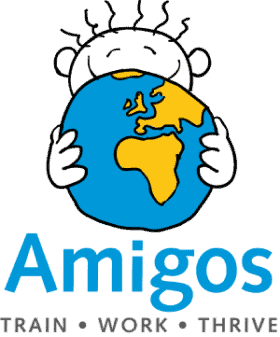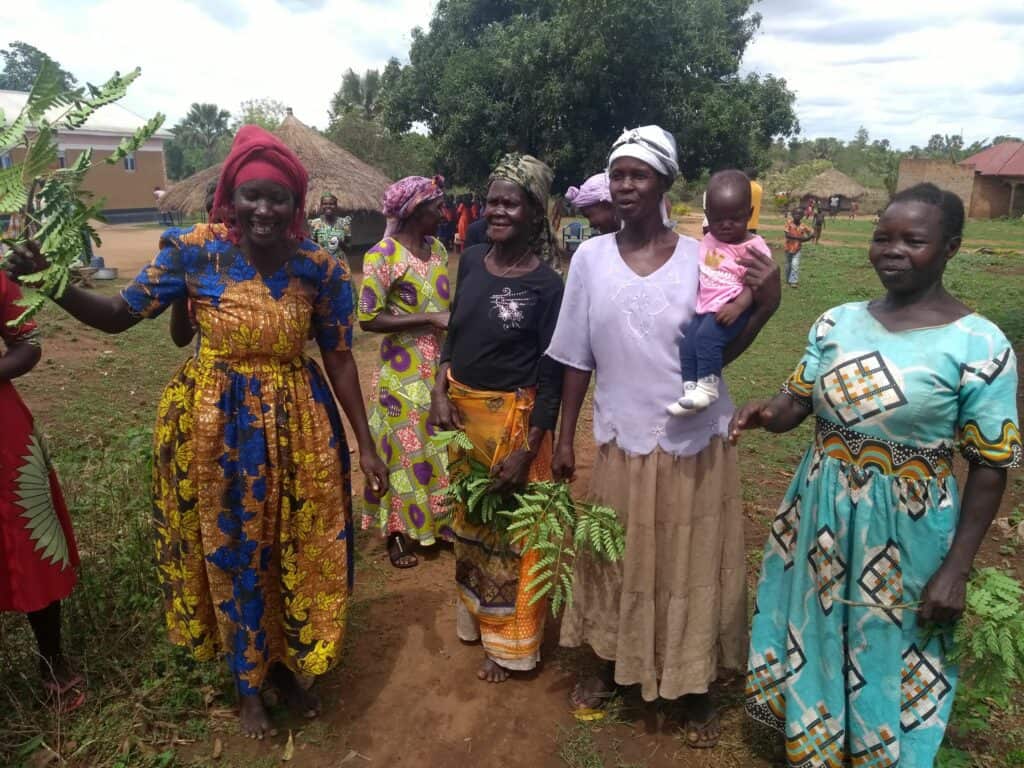Having a vibrant community and being part of it is what makes life worth living. An oft-expressed view in Africa is, “I am because we are and since we are, therefore I am.” Many things, however, go into achieving a strong, secure and hopeful community.
With many of the communities we work with having experienced the trauma of civil war, struggling with food insecurity, being damaged by domestic violence and being unable to access clean water, many lives are desperate, fragile and fearful.
Our work involves coming alongside communities to support them to identify the challenges holding them back and the opportunities to take them forward. These challenges and opportunities are frequently interconnected and the interventions such as water supply, conservation farming, business skills, conflict resolution and growth mindset training work together to enable communities to achieve far-reaching results and rebuild life in the community.
Three community members active in bringing change to their communities offer their perspectives. First, Adokorach Concy shares about the impact of clean water:
“Life without safe drinking water was so tedious for everyone in this community. We experienced a lot of water scarcity issues such as long walks to the swamps, infections caused by waterborne diseases, and time wastage as we would spend most of our productive hours of the day searching for water. My youngest daughter, Esther, used to fall sick often because we fetched water from the swamps shared by animals and she used to drink it. But ever since I started collecting water from the borehole, I have reduced the number of times I visit the hospital and no longer with water-related diseases. Generally, people are relieved from infections caused by waterborne diseases and hygiene standards have greatly improved among the community members. The burden we used to go through in search of water is a thing of the past. And I now have plenty of time for my business besides other domestic tasks.”

Second, Angeyo Rose highlights the effect of learning sustainable and revitalising farming within a mutually supportive group:
“With great pleasure, I want to appreciate the good work this project is doing in our community, touching everyone’s life and restoring hope for the future. Thanks to the conservation farming skills, my harvest has not only doubled but trebled. Before the project, I used to harvest 2 bags from one acre using traditional methods of farming but now I harvest between 8 to 10 bags from the same land. This has motivated me more because besides having enough food to eat at home I also still have a surplus to sell.
Apart from the bumper harvests, the project has brought peace and unity among the community farming group members and their families. We pray together, acknowledge God in everything that we do and are seeing that change comes from the inside out.

The war left us with big wounds that will take time to heal and I have hope that this project will bring tremendous impact in the life of many people in this community.”
Third, for 28 year old Beatrice Akello, while she has participated in all the work, what she remembers most are the trainings in growth mindset, business and gender issues.

“Before I became part of the farming group, I didn’t have any other work to do apart from domestic work. Thanks to the growth mindset and business training, my mind was opened and gave me the courage to start a business. I didn’t have any startup capital at hand to begin but since the group has a saving scheme, I borrowed 100,000Ugx from the group savings and started a food store business in the nearby trading centre where I sell tomatoes, onions, beans, silverfish, cooking oil, millet flour and other things. My business is growing and doing very well. On average, my daily profit is 5,000Ugx and on a good day, especially on market days, I make over 10,000Ugx in profit. This has made me grow as a person and become financially stable where I do not have to rely on my husband for everything.
My husband is very supportive and respects my business money though I always inform him of the business’s progress. With our earnings, we can now send all our children to school as well as meet other home expenses. I am grateful for being taught how to fish. Now, I can pick the hook and catch the fish myself rather than wait to be given scraps by others.”
So communities are taking steps to rebuild livelihoods and become places where life and relationships flourish.

